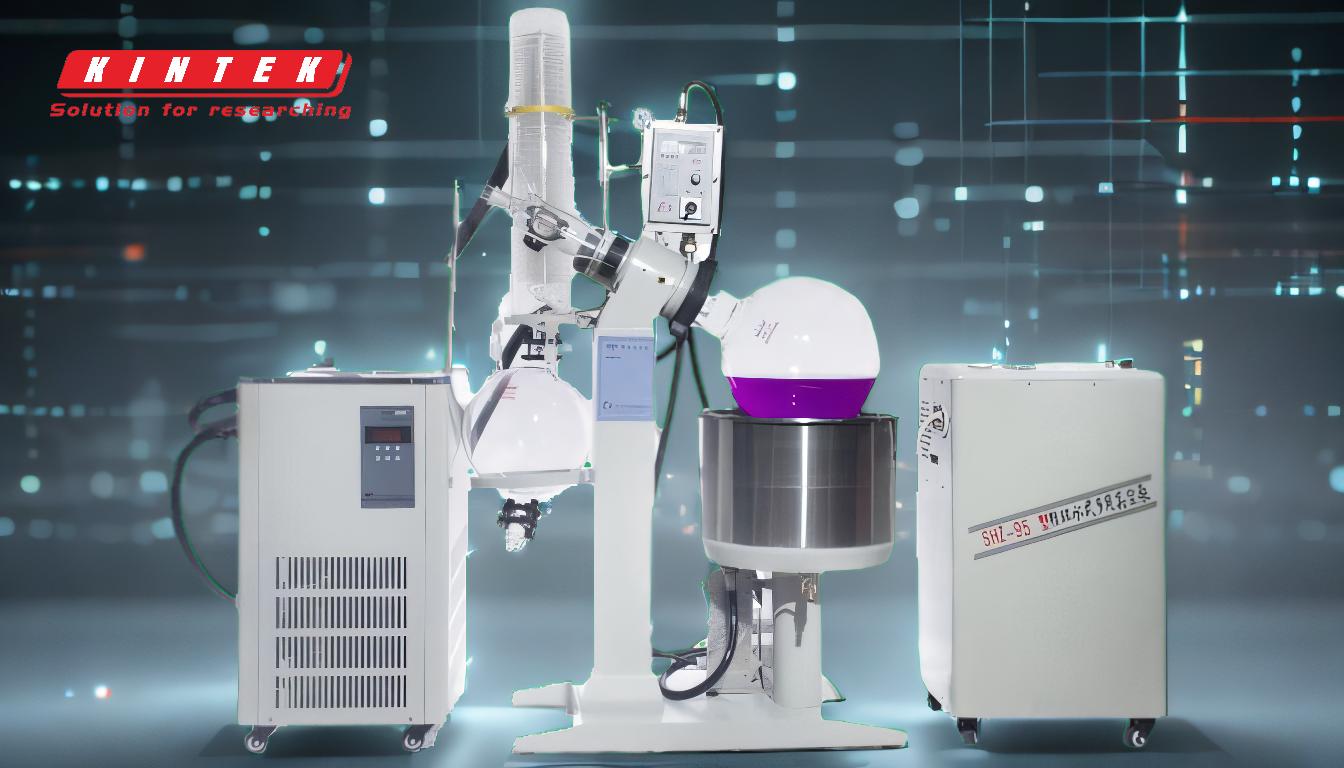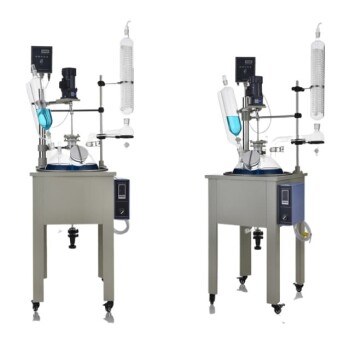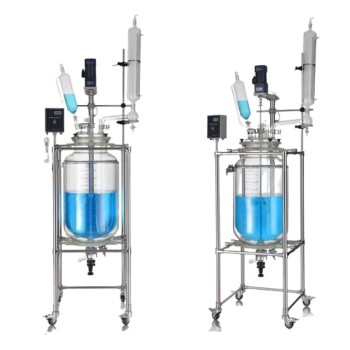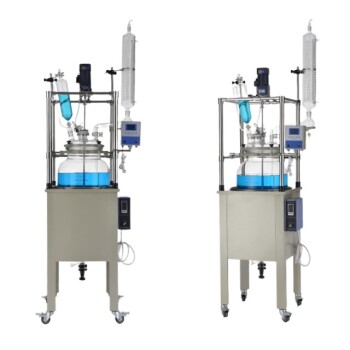Wiped film distillation systems can indeed be made with both metal and glass, depending on the specific application and requirements. The choice between metal (typically stainless steel) and glass (such as borosilicate glass) depends on factors like chemical resistance, thermal stability, ease of cleaning, and the nature of the materials being processed. Glass is often preferred for its transparency and chemical inertness, making it ideal for laboratory settings and heat-sensitive materials. Metal, on the other hand, offers greater durability and is better suited for industrial-scale operations or handling high-viscosity, high-solids materials. Both materials have their unique advantages and are widely used in wiped film distillation systems.
Key Points Explained:

-
Materials Used in Wiped Film Distillation Systems:
- Borosilicate Glass: Commonly used due to its excellent chemical resistance, transparency, and thermal stability. It is ideal for laboratory-scale distillation and processing heat-sensitive materials.
- Stainless Steel (e.g., 304 Stainless Steel): Preferred for industrial applications due to its durability, strength, and ability to handle high-viscosity and high-solids materials.
-
Advantages of Glass in Wiped Film Distillation:
- Chemical Inertness: Glass does not react with most chemicals, ensuring the purity of the distillate.
- Transparency: Allows for visual monitoring of the distillation process, which is crucial for quality control.
- Thermal Stability: Borosilicate glass can withstand significant temperature changes without cracking, making it suitable for heat-sensitive materials.
-
Advantages of Metal in Wiped Film Distillation:
- Durability: Stainless steel is robust and can withstand harsh industrial environments.
- Handling High-Viscosity Materials: Metal systems are better suited for processing thick, viscous substances and high-solids materials.
- Scalability: Metal systems are more commonly used in large-scale industrial applications due to their strength and durability.
-
Applications of Wiped Film Distillation:
- Heat-Sensitive Materials: Both glass and metal systems are effective for refining heat-sensitive materials, but glass is often preferred for its ability to minimize thermal degradation.
- High-Viscosity and High-Solids Materials: Metal systems are more suitable for these applications due to their robustness and ability to handle thicker substances.
-
Components of Wiped Film Distillation Systems:
- Automatic Dosing Pump: Used to feed crude oil into the distillation column.
- PTFE Rollers (Wipers): Distribute the oil into a thin film for efficient distillation.
- Condenser: Cooled by recirculating fluid to condense the distillate.
- Receiving Vessels: Separate vessels for collecting the high-temperature residue and distillate.
- Temperature-Controlled Recirculating Heaters: Maintain precise temperatures for the feed container and evaporator body.
- Refrigerated Circulators: Used for cooling the cold trap and condenser.
-
Considerations for Material Selection:
- Chemical Compatibility: The material must be compatible with the chemicals being processed to avoid contamination or degradation.
- Thermal Properties: The material should have good thermal stability to handle the operating temperatures without degrading.
- Ease of Cleaning: Glass is easier to clean and inspect, while metal may require more maintenance but offers greater durability.
- Cost and Scalability: Glass systems are typically more cost-effective for small-scale applications, while metal systems are more economical for large-scale industrial use.
In summary, both metal and glass are viable materials for wiped film distillation systems, each offering distinct advantages depending on the specific application. The choice between the two should be guided by factors such as the nature of the materials being processed, the scale of operation, and the desired level of durability and chemical resistance.
Summary Table:
| Aspect | Borosilicate Glass | Stainless Steel (e.g., 304) |
|---|---|---|
| Chemical Resistance | Excellent; inert to most chemicals | Good; resistant to many chemicals but may require specific alloys for harsh substances |
| Thermal Stability | High; withstands temperature changes without cracking | High; durable under extreme temperatures |
| Transparency | Transparent; allows visual monitoring of the process | Opaque; no visual monitoring |
| Durability | Less durable; prone to breakage in harsh environments | Highly durable; ideal for industrial-scale operations |
| Ease of Cleaning | Easy to clean and inspect | Requires more maintenance but is robust |
| Applications | Ideal for lab settings and heat-sensitive materials | Best for high-viscosity, high-solids, and industrial applications |
| Cost | Cost-effective for small-scale use | Economical for large-scale industrial use |
Need help choosing the right material for your wiped film distillation system? Contact our experts today for personalized advice!











